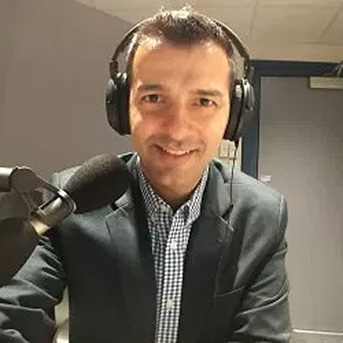
The committee is led by the University Libraries and the Office of the Associate Vice-President Teaching & Learning. It will coordinate the mobilization and discovery of open educational materials produced by the broader York community.
Have you ever clicked a YouTube link to learn something new or read a Wikipedia page? You might be surprised to find that your favourite YouTube video or Wikipedia page is actually classified as an Open Education Resource. Open Educational Resources (OERs) come in a variety of formats, including textbooks, courses, multimedia, streaming video, data and supplementary materials. As a result of the COVID-19 pandemic, demand for access to content including educational materials for online learning has increased and has put the need to remove barriers to these resources into the spotlight.

“As we've found with open-access publishing, open educational resources contribute to knowledge sharing and reduce barriers to accessing knowledge. As an institution of higher education, this is at the heart of our mission,” said Sean Kheraj, vice-dean and associate dean, programs, Faculty of Liberal Arts and Professional Studies (LA&PS) at York University. “New knowledge isn't created in a vacuum. It's created by communities and networks. OERs can expand our community globally and advance our broader goals for the pursuit of new knowledge and understanding.”
The Open Education Steering Committee co-chaired by York's Associate Vice-President of Teaching and Learning Will Gage, and Dean of Libraries Joy Kirchner, with key faculty members, Teaching Commons leadership and librarians, is gearing up to launch a faculty-wide survey to help to do just that. The survey will be used to reach out to faculty to better support access to resources for students and to inform pathways to advance innovative open education supports including an inventory of campus activities in this space as well as professional development opportunities.

“We know there are significant innovative and pedagogical practices in our community that might fall into the category of open education but may not be identified as such,” said Kirchner. “Part of the purpose in disseminating the survey is to surface this activity, identify how we may consider campus supports to help facilitate the creation and implementation of high-quality open education resources and potentially engage with our community on other synergistic opportunities or collaborations with the sharing of our findings.
“There is significant global momentum on OERs right now. UNESCO has recently unanimously adopted a recommendation on OERs and has stated it 'believes that universal access to information through high quality education contributes to peace, sustainable social and economic development, and intercultural dialogue' … and 'provides a strategic opportunity to improve the quality of learning and knowledge sharing as well as improve policy dialogue, knowledge-sharing and capacity-building globally.' I believe York has enormous potential to lead in this space,” added Kirchner.

The committee’s Open Space event with faculty participants helped to create a full report of ideas on how open education can foster unique opportunities for engagement with all stakeholders. In addition, three working groups were created to advance the OE objectives as outlined by the committee. Building on the sustainability of OERs continues to be a priority as student needs continue to evolve.
“I’ve been working heavily with OERs for several years, and I've incorporated them in past jobs where I had to derive mock lectures,” said Anni Siren, PhD student at the Lassonde School of Engineering. “In addition, I actively use OERs in my teaching practice at York. There are many brilliant resources that can be found such as full textbooks, and even fully interactive open resources. However, to take advantage of these numerous resources, you need first to know they exist, and second to know where to find them, which can be its own challenging endeavor.”
“The creation and dissemination of OERs online serves to reduce barriers to higher education for students all around the world,” said Gage. “The opportunities for our York University colleagues to contribute to these accessible resources are opportunities that our colleagues take to demonstrate their leadership in their fields. In return we can be inspired by the resources that are contributed by others around the globe. And in this way, what students learn can continually, rapidly evolve.”
Investigating openness in education and pedagogy will allow members of academic institutions to experiment with pathways that foster access to and mobilize education to reach diverse audiences and networks says committee member Dominique G Scheffel-Dunand, associate professor, Department of French Studies (LA&PS) and the graduate programs in Francophone Studies at Glendon College.

“By providing agency to working groups exploring credentialing and policies for Open Access, Open Data Management and Open education, York is encouraging its community of instructors and scholars to collectively reflect and design inclusive mechanisms and educational practices that will mediate the needed transformations between structure and agency, moving from confronting constraints to elaborating a course of action that promotes and recognizes systemic Open Education Practices at York,” said Scheffel-Dunand.
“I’m delighted by this initiative to surface York’s innovations in teaching and learning in a new light,” said Lisa Philipps, provost and vice-president academic of York University. “The potential that OE provides in linking our excellence in teaching with SDGs [Sustainable Development Goals] through this work is an exciting prospect.”
This year, the steering committee plans to engage the greater community during Open Education Week, an annual event that aims to raise awareness about open education in teaching and learning globally.
Glendon hosted a workshop this week that discussed the ongoing development of Camerise – a bilingual FSL OER digital repository and platform piloted by Glendon and designed to support and engage the French as a second language community. In addition, Scheffel-Dunand will be leading a workshop at the Open Education Global 2021 & 2022, a conference series that will be held across two different events co-hosted by Open Education Global and the University of Nantes.
For more information on the Open Education Steering Committee discussions register for the Open Education CoP listserv or visit oesc.library.yorku.ca.
